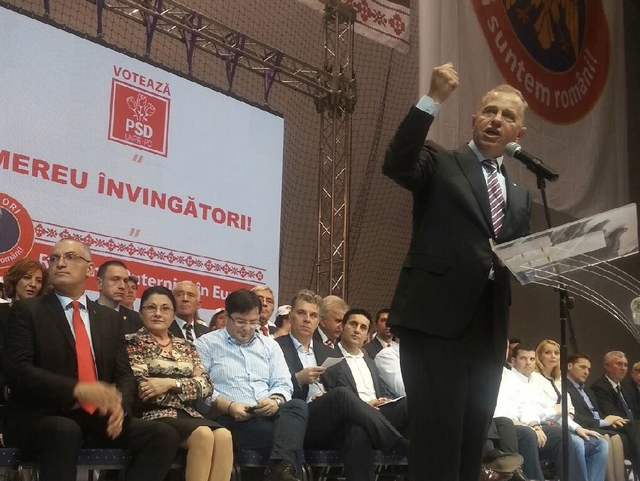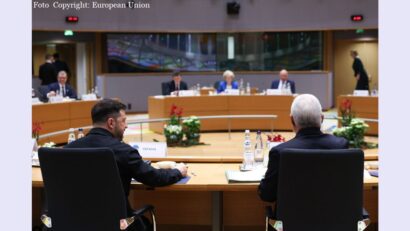The Romanian political scene after the presidential elections
The Social Democratic Party is determined to change its political strategy after losing the presidential elections.

Valentin Țigău, 28.11.2014, 14:18
Three high-profile members of the Social Democratic Party, Mircea Geoana, Marian Vanghelie and Dan Sova, were expelled on Thursday from the main party in the ruling coalition. They were primarily accused of breaching the principle of party unity. The decision was made in the first meeting of the Social Democrat leaders after Victor Ponta’s failure in the presidential elections of mid-November. Surprisingly enough, the party did not punish the people responsible for losing the elections, starting with Victor Ponta, who accepted full responsibility for his failure.
The Social Democrats also decided to hold a National Council and Congress next spring, in order to elect the new leaders of this left-of-centre party and to come up with a new political project for Romania for the coming 5 years.
The next important test for the Social Democratic Party are the parliamentary elections due in 2016, but until then, the party intends to stay in power, as prime minister Victor Ponta explained:
“We intend to present Parliament with a reshuffled cabinet and the budget for 2015, so as to carry on the good projects we have launched.”
The prime minister also said his government would pay more attention to fields like education, healthcare and infrastructure. As regards the overall image of his party, Victor Ponta said its strategists would have to find a solution to prove that the Social Democratic Party has broken with its communist past and that it is a reformed, European political entity.
While their leader’s electoral failure did not prompt the Social Democrats to take measures against those responsible, things were different with their partners in the ruling coalition, the Democratic Union of Ethnic Hungarians in Romania. Its president Kelemen Hunor on Thursday made public the decision of the party’s Standing Council to leave the ruling coalition, given that 80% of ethnic Hungarian voters supported the Liberal candidate Klaus Iohannis in the second round of the presidential elections. Kelemen Hunor:
“We believe the vote in both the first and the second round of the presidential elections was a very clear message from our voters, and will not be looking for further explanations. We decided to strengthen our relationship with our voters.”
The leader of the ethnic Hungarians in Romania also said the decision is not likely to trigger political instability, given that the Social Democrats and their other partners will still have a parliamentary majority. Moreover, the Democratic Union of Ethnic Hungarians vowed to support any measures that would benefit Romania’s citizens, including the Hungarian community.






























